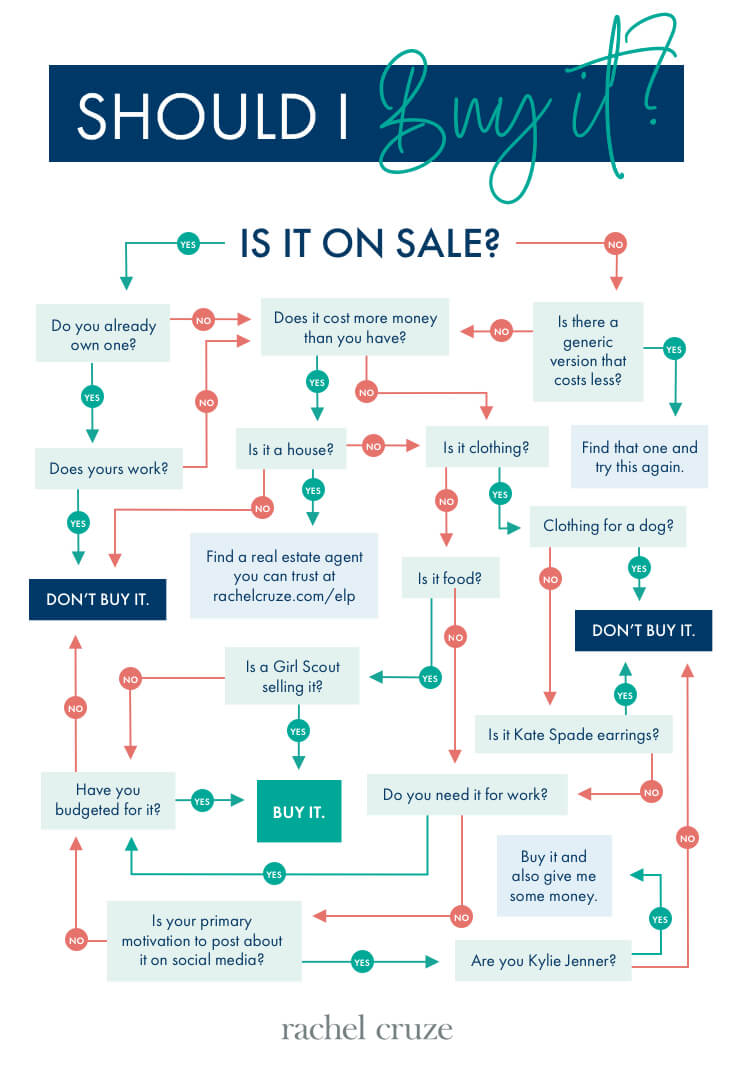Less than one in three Americans are considered “financially healthy.”1 That’s according to the Financial Health Network, who conducted a study late last year—when the economy was booming and well before COVID-19 put many Americans’ incomes at risk.
If the recent state of the world has caused you to reevaluate your financial health, or if you realize it’s finally time to put on your grown-up pants and take your money seriously, I want to help you get into a solid financial position. The good news is, it doesn’t matter where you’re starting from! The principles I’m going to walk you through apply to everyone, no matter how much or how little money you have.
Let’s go over my five foundations for improving your financial health. They are:
- Determine where you’re starting from.
- Tell your money where to go.
- Start spending less than you earn.
- Plan for your future.
- Become a generous person.
Not too complicated, right? Let’s break these down.
5 Foundations for Improving Your Financial Health:
1. Determine where you’re starting from.
If you want to reach the goal of becoming financially healthy, you’ve got to know where you’re starting from. And I don’t just mean how much money you have to your name. To really figure it out, you’ll need to do some self-discovery around your beliefs about money.
There are several factors that influence your financial health, what you believe about money, and how you handle it. One of those factors is how you grew up. The environment you were raised in shaped your beliefs about money, and your habits with money, in very specific ways. I call this your money classroom.
Your money classroom is largely influenced by your parents. They may have taught you some great money lessons! But others may have to be unlearned.
Then, when you finally had your own money to spend on your own terms, things may have been quite different. Some people spend or save like crazy out of fear of ending up just like their parents. Others fall into the same habits because that was their “normal.”
Whatever your case may be, self-awareness is key. Take some time to think about the way you grew up and how that has shaped how you relate with money. Think about some mistakes you’ve made. (We all have!) How can you shift your mindset to make better decisions from this point forward? Once you’ve at least thought about that, let’s move on to . . .
2. Tell your money where to go.
People who become successful at anything reach a point where they wake up to the reality of their decisions, and then they commit to make a change. It’s no different when we’re talking about our money. If you want to improve your financial health, you need to make money work for you—and a budget is the plan that will make that happen.
Money doesn’t just drift into your savings account, and debt doesn’t get paid off on its own. You have to be purposeful and have a plan. You have to tell your money where to go.
So, step one is to make a budget. If you’re serious about wanting to take control of your money instead of having money take control of you, then you have to learn to live within a budget. And despite what you may have been told, a budget doesn’t limit your freedom—it gives you freedom!
3. Start spending less than you earn.
I realize it’s normal to “live it up” and spend your whole paycheck. But that’s why 78% of Americans live paycheck to paycheck!2 Normal is broke, so be different.
Borrowing from your future to keep up a lifestyle you can’t afford doesn’t have to be your story—especially if you want to be financially healthy. You can make a choice today to live differently. You can choose a life of freedom and stability while you live life on your terms—not Visa’s.
The way you do it is by living on less than you make. There will always be temptations coming at you from every direction along the way. Everybody wants a piece of your paycheck, am I right? But you get to dig in your heels and say, “Nope. I choose to live wisely and within my means.”
This is the time when you really need to think through and identify your basic needs. That way, you’ll have enough money to make real progress toward more important goals, like getting out of debt!
For me and my husband, Winston, it’s required some sacrifice. And sacrifice is hard. It’s hard to see all your friends go on vacation. It’s hard not to get the furniture you really want before the party you’re hosting. It’s hard turning down a dinner invitation because it’s not in the budget. Those choices aren’t fun in the moment, but they lead to an abundant life.
One thing that’s helped us is the hard realization that, when it comes to spending money, there’s a difference between needs and wants. Food, utilities, shelter and transportation are needs.
You need food to survive, lights and hot water, a safe place to live, and the means to get to and from work. Those are considered your basic needs. If you have these things, even when times are tough, you’ll live on to fight another day.
Online streaming services, cable, fantasy football leagues and a Halloween costume for your dog are all wants.
These days, we’re able to say yes to all that stuff more often because of what a live-on-less-than-you-make lifestyle has enabled us to do: keep more of our paychecks and save.

4. Plan for your future.
Nothing will make you feel more financially healthy than a stockpile of cash sitting in the bank, waiting for a rainy day. It’s called your emergency fund, and it’s your safety net when emergencies happen.
Too many people reach for their credit card when their car breaks down, but all that does is turn a car problem into a money problem. Then, compound interest turns the money problem into more and more debt, stress and worry. That’s not good for your actual health, let alone your financial health.
But when you have money in the bank just for emergencies, you can simply get the car fixed. No stress. No drama. And your financial health won’t take the hit—your emergency fund is there to protect it.
It can be difficult at times to build this up, but if you make it a priority, it will happen—and then you’ll have so much peace of mind!
Begin with a starter emergency fund of $1,000. This will cover smaller emergencies while you’re getting out of debt. Once you’re out of debt, take your emergency fund up to a full three to six months of your expenses. And once you’ve got that, invest 15% of your income into retirement. Each of these steps are part of my nine-week plan to never worry about money again: Financial Peace University. You can learn more about that here.
5. Become a generous person.
You may wonder how giving of your resources will improve your financial health, but this foundation will change you in more ways than one.
The act of giving changes your relationship with money and with the people around you. Living generously with an open hand keeps money in the proper perspective for you, and it blesses everyone involved. It will move you on the spectrum from selfish to selfless.
Plus, people who give are generally happier and less stressed because giving actually releases oxytocin in your brain.
So, let me challenge you: This month, give away 10% of your income. Yup, I’m serious. You can give it to your local church (this is called a tithe), a family member affected by a recent job loss, or however you feel led.
Generosity is a sign of someone who is truly financially healthy. If you take me up on the challenge, I want to hear what your generosity did for someone else and what it did for your heart.
You Can Change Your Financial Health
If you want to change your financial health, you’ve got to change your mindset. You can’t live life on your terms without paying attention to how you use your money. If you want to create good money habits, you’ve got to be willing to do whatever it takes . . . even if it’s uncomfortable and awkward in the beginning. As you do, you’ll find you can do more with your money than you ever thought possible.
